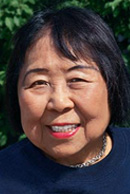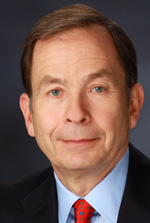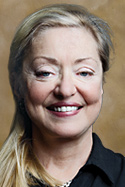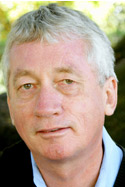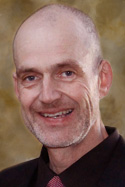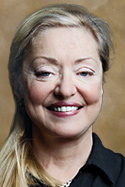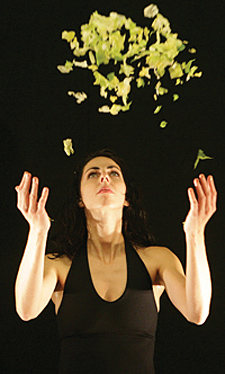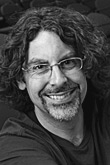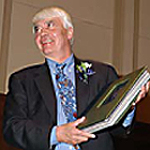Baroque composer Henry Purcell’s opera “The Fairy Queen” receives a modern adaptation in Lawrence University’s production of the fantastical tale of romance and magic. The opera will be performed March 1-3 at 8 p.m. and March 4 at 3 p.m. in Stansbury Theatre of the Music-Drama Center.
Tickets, at $10 for adults and $5 for senior citizens and students, are available through the Lawrence University Box Office, 920-832-6749.
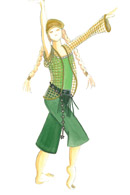 Originally written as a “masque” — light entertainment featuring lavish costumes and scenery but nearly devoid of narrative — the opera was inspired by Shakespeare’s “A Midsummer Night’s Dream.” The story follows four young lovers’ escape to an enchanted forest.
Originally written as a “masque” — light entertainment featuring lavish costumes and scenery but nearly devoid of narrative — the opera was inspired by Shakespeare’s “A Midsummer Night’s Dream.” The story follows four young lovers’ escape to an enchanted forest.
The updated adaptation, written by Professor of Theatre Arts Timothy X. Troy ’85, who also serves as the production’s director, replaces the anonymously written libretto with Shakespeare’s own words.
“I restored the actors’ text to the First Folio version before shaping a narrative that closely followed the story of the young lovers who are tricked in the forest by Puck, the most famous of all fairies,” said Troy.
His adaptation was inspired by the psychedelic cover art of fairies on an LP of English composer Benjamin Britten’s 1973 recording of “The Fairy Queen.” It transports the action to a hippie commune in the woods outside Athens, Ga., immediately after a tornado. The new and modern setting offered creative opportunities for the production team.
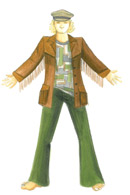 Costume designer Karin Kopischke ’80 playfully explores the eclectic fashions of hippie culture of the commune-dwelling fairies against the academic preppy and jockish culture of the quartet of young lovers and their pursuit of true love.
Costume designer Karin Kopischke ’80 playfully explores the eclectic fashions of hippie culture of the commune-dwelling fairies against the academic preppy and jockish culture of the quartet of young lovers and their pursuit of true love.
“Karin’s costumes are inspiring, lively and delightful,” said Troy. “She found ways to model the repurposing impulse of the period to create a delightful sense of surprise and individuality to each of the 60 costumes you see on stage.”
Rebecca Salzer, Lawrence Fellow in Dance who served as choreographer for the production, worked closely with a corps of six dancers to blend Purcell’s set dance pieces with popular dance forms from the 1960’s and early 1970’s.
“To support Tim’s melding of times and places in this production — Baroque music, Elizabethan theatre and a 1970’s American setting — the choreography also had to be a mix of styles,” said Salzer. “If you look closely, you’ll see movement inspired by 60’s mods, 70’s funk and even the occasional minuet.”
Because Purcell’s “The Fairy Queen” is considered a “semi-opera” — an amalgam of scenes from Shakespeare’s “A Midsummer Night’s Dream” and musical interludes — it presented special challenges and opportunities for Bonnie Koestner, associate professor of music, who served as the production’s vocal coach.
“The masque portions (musical interludes) reflect the mood and general spirit of the spoken scenes, but are not directly tied to a plot line,” said Koestner. “It’s somewhat like the difference between a musical revue with its diverse collection of numbers and a Broadway show like ‘Carousel,’ in which the music really does play a part in character development. Both Shakespeare and Purcell have given us works of genius and if the audience doesn’t worry about the lack of a single coherent plot, I think that they will find it very entertaining.”
Featuring some of the most famous music of the Baroque period with virtuosic arias and complex ensembles and choruses, “The Fairy Queen” offers its audience a stunning variety of vocal talent alongside innovative choreography and compelling acting.
“It’s a delight to integrate the talents of our strongest actors with those of our accomplished singers,” said Troy.
About Lawrence University
Founded in 1847, Lawrence University uniquely integrates a college of liberal arts and sciences with a world-class conservatory of music, both devoted exclusively to undergraduate education. Ranked among America’s best colleges, it was selected for inclusion in the book “Colleges That Change Lives: 40 Schools That Will Change the Way You Think About College.” Individualized learning, the development of multiple interests and community engagement are central to the Lawrence experience. Lawrence draws its 1,445 students from 44 states and 35 countries.
